Understanding the differences among Universal Design and Inclusive Design implementation: Context of Indonesian Public Library
Presenter: Gunawan Tanuwidjaja, PhD Candidate and Lecturer, Queensland University of Technology
Poster Presentation
The promotion and protection of the rights of Persons with Disabilities is central to the UN Convention on the Rights of People with Disabilities (UNCPRPD) which also adopted in Republic of Indonesia. Following the recommendation of UNCRPD, several Indonesian national regulations advocate for the rights of Persons with Disabilities (PwDs) and Universal Design implementation. The legislation operates over three levels adding to the complexity of disability-related policies in the country. However, the implementation of the Indonesian regulations remains problematic with many buildings, especially public libraries.
In response to such barriers, previous studies suggest to improve the educational facilities and services. Recognising that public libraries role in educational provision of PwDs, this study will identify the barriers and opportunities for the Universal Design (UD) or Inclusive Design (ID) of Public Libraries in Indonesia and Australia. In this initial stage, Both UD and ID concept are evaluated because of the USA and the UK design process model facilitating PwDs and older people. Despite of the difference, both concepts will be discussed for this PhD study.
This study will involve an exploration of an Indonesian and Australian Public Library. In particular, the study aims to investigate the barriers and key success points of implementing Inclusive Design (ID) in public libraries from Indonesian and Australian stakeholders’ perspectives. The purpose of this study is to create an ecological model of the stakeholders’ participation in ID implementation in Indonesia and Australia. This study uses a Grounded Theory (GT) methodology supported by Case Study Research (CSR), and Post Occupancy Evaluation (POE) framework. The study will utilise document evaluation, stakeholder interviews, and walkthrough evaluations of the selected case libraries.
